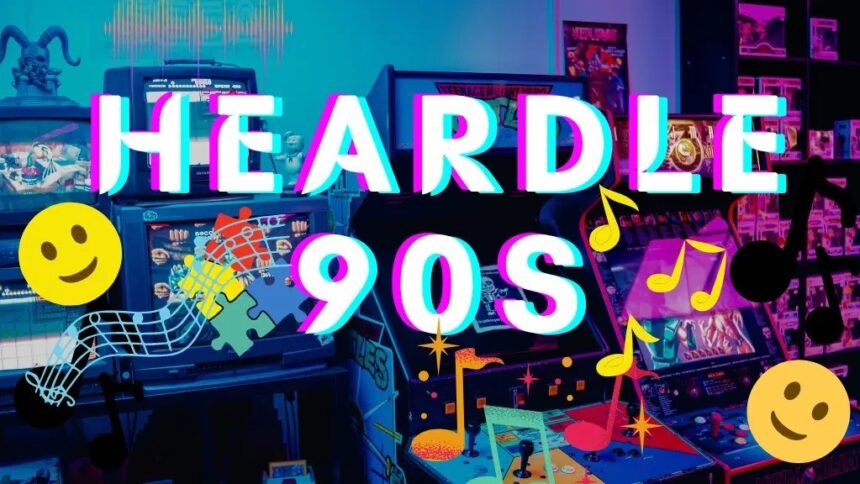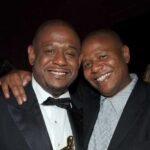In the vast sea of online games and entertainment platforms, Heardle 90s stands out as a nostalgic beacon for music lovers and trivia enthusiasts alike. This unique game combines the challenge of a classic guessing game with the unmatched charm of 90s music, offering players a delightful journey back in time. Heardle 90s isn’t just a game; it’s a time capsule that transports players back to the era of grunge, hip-hop, pop ballads, and dance hits that defined a generation. In this article, we delve deep into the essence of Heardle 90s, exploring its gameplay, cultural impact, and how it serves as a bridge between past and present music lovers.
The Essence of Heardle 90s
Heardle 90s is a musical guessing game inspired by the popular game “Heardle,” tailored specifically to fans of 90s music. The game plays a few seconds of a song from the 1990s, and players must guess the song’s title and artist. As the game progresses, more segments of the song are revealed, making it easier to guess for those who might need a little more to jog their memory. This game challenges players’ knowledge of the 90s music scene, spanning various genres from rock and pop to R&B and dance music. It’s not just about guessing the songs; it’s about reliving the memories and moments associated with them.
Gameplay and Features
The gameplay of Heardle 90s is straightforward yet engaging. Players are greeted with a snippet of a song, and with each incorrect guess or skip, a longer portion of the track is played. The aim is to name the song in as few attempts as possible, challenging players to rely on their memory and musical knowledge. The game’s interface is user-friendly, making it accessible to players of all ages. Additionally, Heardle 90s incorporates social sharing features, allowing players to share their scores on social media and challenge friends, thereby fostering a sense of community and competition among 90s music aficionados.
A Nostalgic Journey Through Music
For many, Heardle 90s is more than a game; it’s a nostalgic journey through a defining era of music. The 90s were a time of significant musical diversity and innovation, with genres and artists that left a lasting impact on the music industry. Playing Heardle 90s evokes memories of the decade’s cultural moments, from iconic music videos on MTV to memorable live performances and groundbreaking albums. Each song featured in the game serves as a reminder of the era’s soundtrack, bringing back memories of youth, friendships, and pivotal moments in players’ lives.
Cultural Impact and Revival of 90s Music
The popularity of Heardle 90s underscores a broader cultural phenomenon: the revival of 90s music and nostalgia. As players engage with the game, they are not only testing their knowledge but also revisiting the sounds that shaped the musical landscape of the 90s. This revival has sparked renewed interest in 90s music across streaming platforms, with playlists and compilations gaining popularity among both those who lived through the era and younger generations discovering its charm for the first time. Heardle 90s plays a crucial role in this resurgence, acting as a catalyst for the exploration and appreciation of the decade’s music.
Bridging Generations Through Music
One of the most remarkable aspects of Heardle 90s is its ability to bridge generations through the universal language of music. While the game is a treasure trove for those who grew up in the 90s, it also introduces younger players to the era’s musical heritage. This cross-generational appeal is a testament to the timeless quality of 90s music and its ability to resonate with listeners across age groups. Heardle 90s provides a platform for sharing musical experiences, fostering discussions about the songs and artists that defined the decade, and encouraging a deeper appreciation of music history.
The Mechanics Behind the Music
At its core, Heardle 90s taps into the power of auditory memory, a fascinating aspect of human cognition. The game ingeniously exploits our ability to recognize and recall songs, a testament to the emotional and mnemonic power of music. Auditory memory is stronger with music due to its combination of melody, rhythm, and lyrics, which are often linked to specific life events or periods. Heardle 90s leverages this by choosing snippets that are distinctive yet challenging, compelling players to dig deep into their musical memories. This process not only makes the game engaging but also stimulates cognitive functions, showcasing the intricate relationship between music, memory, and emotion.
The Social Phenomenon of Competitive Nostalgia
Heardle 90s doesn’t just unite players with a love for 90s music; it also ignites a sense of competitive nostalgia. This phenomenon goes beyond simple reminiscence, encouraging players to measure their musical knowledge against that of their peers. The competitive aspect is heightened by the game’s social sharing features, which allow players to boast about their scores or challenge friends to beat them. This blend of nostalgia and competition creates a dynamic social experience, fostering connections over shared musical heritage while also driving a friendly rivalry. It’s a testament to how digital platforms can transform individual memories into a collective experience, strengthening bonds among users.
Conclusion: The Timeless Appeal of Heardle 90s
Heardle 90s is more than just a game; it’s an homage to a vibrant era of music that continues to captivate and inspire. Through its simple yet engaging gameplay, it offers players a chance to reminisce, rediscover, and relive the soundtrack of the 90s. The game’s cultural impact extends beyond entertainment, contributing to the ongoing revival of 90s music and bridging the gap between generations. As Heardle 90s continues to grow in popularity, it stands as a celebration of the enduring appeal of 90s music, inviting players from all walks of life to guess the song, relive the era, and keep the legacy of 90s music alive for years to come.







